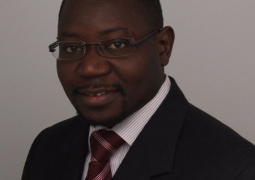A forum on electricity power market structure and model organised by the African Forum for Utility Regulators (AFUR), with financial and technical support from European Union will end today in Banjul.
The four-day workshop on electric power market structure and model was held at the Kairaba Beach Hotel in Kololi.
The purpose of the workshop was to share views on power market structures and model through the example of five pilot countries and contribution of participants related to their own country and sub-region.
The workshop also seeks to provide participants with an overview of practices of economic regulation in the field of electric power, and also to provide an overview of the methods for attracting private investment into power sector activities through public private partners.
Delivering a statement on the occasion, the Director General of the Gambia Public Utilities Regulatory Authority (PURA), Mr. Alagi B. Gaye said that the first generation reforms of African markets like other infrastructures of African economies in the 1980s and 90s led to some private participation in the management and ownership of vertically-integrated monopolies.
According to him, the most dramatic impact of reforms has been in the telecommunication area, where private companies invest even in the poorest countries by bringing services to the most remote areas, due to the technology progress.
Mr. Gaye further disclosed that Africa has the lowest electrification rate in the world with an average of 28%, excluding North Africa. He added that the need for more comprehensive reforms in the electricity market and innovative mechanisms is necessary.
An energy expert from NEPAD Secretariat, Professor MM. Elmissiry described the European Union and NEPAD as very crucial partners. He hailed the EU for supporting the programme aimed to facilitate and implement every resources on how to achieve regional integration.
For her part, the Minister of Energy, Sira Wally Ndow-Njie asserted that energy sustainability and acceptability is one of the crucial issues facing humanity.
"Without energy economy cannot grow, poverty cannot be reduced, therefore, it is of utmost importance that electricity is available for industries to thrive, commerce and agriculture to grow and that of social services," she said.
She noted that it is a pre-requisite for African power utilities to be more efficient and viable to attract funds for the private sector.
She added that African countries are endowed with a lot of resources, such as wind, solar, hydro that when fully utilised will greatly help to solve electric power needs. She stressed that inter-state connection is paramount to promote electric power trading in order to invest in transmission and distribution infrastructures across countries, sub-region and the entire African continent.
She finally challenged delegates to come up with the most ideal electric power market structure and model to bring adequate, reliable and efficient electric power supply to African countries in order to meet both current and future electric power needs.
Idrissa Niasse, the Chairman of the Energy Sectoral Committee at AFUR based in Dakar, Senegal, said energy efficiency provides enough capacity for production, thereby meeting the increasing demand for electricity. He promised that at the end of the Banjul meeting, the African Forum for Utility Regulators, would convene another one for sustainability and efficiency of electricity in Africa.
Read Other Articles In Article (Archive)



